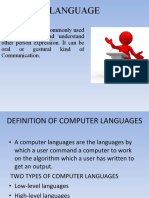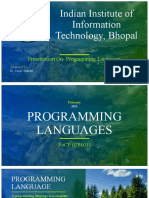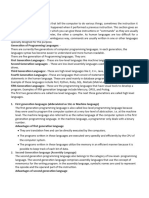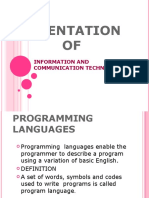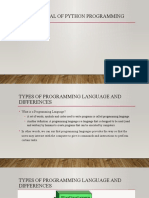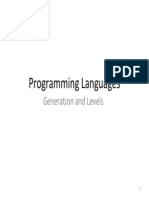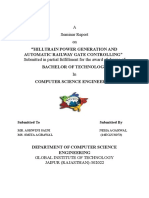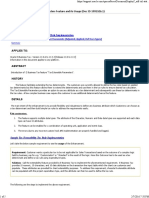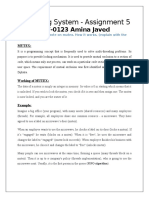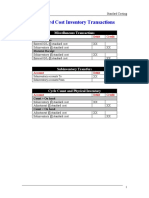0% found this document useful (0 votes)
4 views14 pagesTypes of Programing Language
The document discusses programming languages, defining them as artificial languages used to communicate instructions to computers. It outlines the generations of programming languages from machine language to natural language, and details various types such as C, C++, Java, and Python. Additionally, it highlights the advantages and disadvantages of high-level programming languages.
Uploaded by
Harshrajbhar HarshrajbharCopyright
© © All Rights Reserved
We take content rights seriously. If you suspect this is your content, claim it here.
Available Formats
Download as PPTX, PDF, TXT or read online on Scribd
0% found this document useful (0 votes)
4 views14 pagesTypes of Programing Language
The document discusses programming languages, defining them as artificial languages used to communicate instructions to computers. It outlines the generations of programming languages from machine language to natural language, and details various types such as C, C++, Java, and Python. Additionally, it highlights the advantages and disadvantages of high-level programming languages.
Uploaded by
Harshrajbhar HarshrajbharCopyright
© © All Rights Reserved
We take content rights seriously. If you suspect this is your content, claim it here.
Available Formats
Download as PPTX, PDF, TXT or read online on Scribd
/ 14



